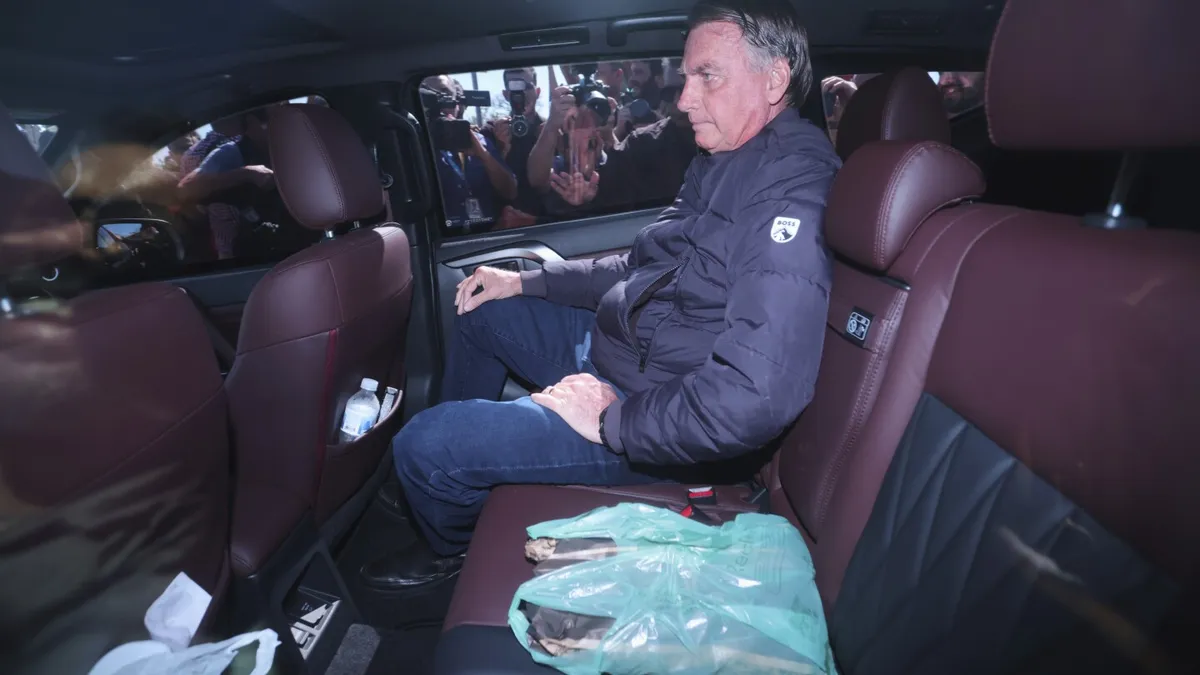
In a significant legal development, Brazil's former President Jair Bolsonaro has been mandated to wear an ankle monitor, a decision he has publicly denounced as “a supreme humiliation.” This ruling was announced by authorities on Friday, coinciding with federal police conducting searches at both his residence and the headquarters of his political party in Brasília, as directed by a Supreme Court order.
The recent court order imposes strict limitations on Bolsonaro's activities. He is now prohibited from leaving his home during the night, communicating with foreign ambassadors and diplomats, and approaching embassies. Additionally, the former president is barred from using social media and from contacting other individuals currently under investigation by the Supreme Court, including his son, Eduardo Bolsonaro. Eduardo, a Brazilian lawmaker residing in the United States, is known for his close connections to former U.S. President Donald Trump.
Bolsonaro is currently facing trial at the Supreme Court, accused of orchestrating an alleged attempt to stage a coup to overturn the results of the 2022 presidential election, which was won by left-wing leader Luiz Inácio Lula da Silva. Following the imposition of the ankle monitor, Bolsonaro expressed his feelings of injustice, stating, “I never thought about leaving Brazil, I never thought about going to an embassy, but the precautionary measures are because of that.”
In a show of solidarity, Donald Trump reached out to Bolsonaro, labeling the Brazilian legal system's treatment of his ally as “terrible and unjust.” Trump demanded that the trial against Bolsonaro should be concluded immediately, asserting his position by saying he had “strongly voiced” his disapproval through his tariff policies. This support comes amid a backdrop of escalating tensions between Bolsonaro and the Brazilian judiciary.
The Supreme Court's restrictions are part of an ongoing investigation into Eduardo Bolsonaro's alleged collaboration with U.S. authorities to impose sanctions on Brazilian officials. Justice Alexandre de Moraes, the case's rapporteur, accused both Bolsonaro and his son of engaging in “blatant confessions of criminal conduct,” which include coercion during legal proceedings and attempts to obstruct investigations.
In response to the Supreme Court's actions, Eduardo Bolsonaro took to social media platform X to criticize the judicial system, asserting that the prohibition against a father speaking to his son symbolizes the hatred directed at them. His brother, Senator Flávio Bolsonaro, echoed similar sentiments, describing the restrictions as emblematic of political animosity.
Aerial footage from local broadcasters revealed federal police vehicles outside Bolsonaro's home in Brasília, indicating the seriousness of the situation. Congressman Sóstenes Cavalcante, who leads Bolsonaro’s party in the lower house, characterized the police operation as “another chapter in the persecution of conservatives and right-wing figures” in Brazil. Meanwhile, Bolsonaro's legal team has yet to comment on the recent developments.
On Tuesday, Brazil’s Prosecutor-General Paulo Gonet submitted a report to the Supreme Court, asserting that “the evidence is clear: the defendant acted systematically, throughout his mandate and after his defeat at the polls, to incite insurrection and destabilize the democratic rule of law.” Bolsonaro has labeled the trial as a “witch hunt,” a term that resonates with Trump's defense of him last week.
Last week, Trump enacted a 50% import tax on Brazilian goods, explicitly linking the tariffs to Bolsonaro’s ongoing legal challenges. Trump has previously hosted Bolsonaro at his Mar-a-Lago resort during their respective administrations in 2020. While the former U.S. president continues to draw parallels between his situation and that of Bolsonaro, some justices within Brazil's Supreme Court have reportedly indicated that U.S. tariffs will not influence the outcome of Bolsonaro’s trial, which is anticipated to resume between August and September.
This situation continues to unfold, highlighting the complex interplay between Brazilian politics and international relations, as Bolsonaro navigates his mounting legal challenges and the implications for his political future.